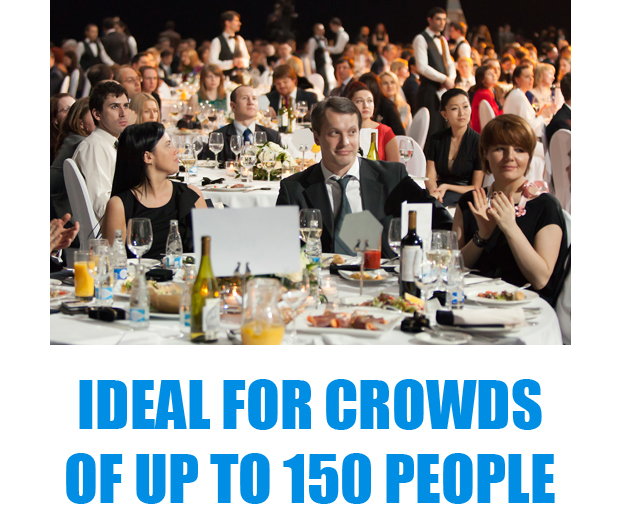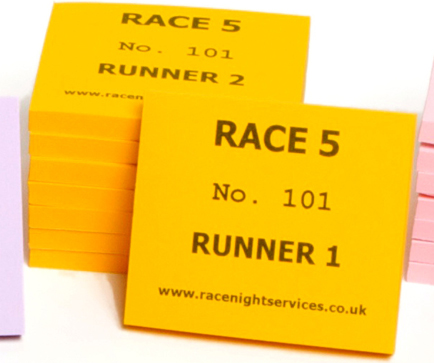Our Most Popular Packages
How To Run a Race Night Charity Fundraiser – Click Above To Buy
- COVID-19 FUNDRAISER IDEA: As featured in April 2020’s SUNDAY MIRROR rated⭐⭐⭐⭐⭐ 5/5
- Race Night DVD’s and tickets, large library of races and virtual doanloads
- Order online or call 07800 787462 – Express delivery available
- April 2020
- Sunday Mirror
If you haven’t attended a charity race night before and you are wondering how to go about organising one, this guide is meant for you.
Alternatively, if you need a reminder, or are just looking for different ways of maximising your fundraising, then a read of this guide is also a must.
First of all, let’s get the legalities out of the way…
Is a race night legal? YES
Race Nights are covered by The Gambling Commission Act, which clearly states that you cannot hold the race night for personal gain; all monies raised must be given to a worthwhile cause e.g. charity, school, football team, sick child etc. The list is endless!
You are allowed to deduct any reasonable expenses that you have incurred whilst organising the event. This includes the cost of hiring the venue, prizes, and any race night products that you have purchased from our website.
No part of the race (e.g. the form guide) can be shown until after all the bets have been placed on that race.
You cannot provide the odds for each horse.
Okay, let’s begin…
You have decided to raise funds for a worthy cause and have heard about race nights. They are the easiest and most economical way of raising money, provided you follow our beginners’ guide.
In some cases we have dealt with organisations who have been delighted to raise £500 and others that have been disappointed by only raising £2,000. It is all about your needs and how much effort you are prepared to give.
Race nights are an ideal way to maximise your fundraising revenue. Not only can you raise money on the night of the race night itself, but you can also raise money prior to the event as well.
Entrance Tickets
How much you charge depends on your audience and your needs. An admission fee of £3 is normal. However, if you want to add a buffet/hot pot, you can charge £5 to reflect the extra expense.
If you have held other events in the past, you will know that not everyone who buys an entrance ticket actually attends the race night. Some people simply pay for tickets as a means of making their donation to your event, with no intention of turning up. Please bear this in mind when setting the price of your entrance tickets, as reasonably priced tickets are an ideal way to raise extra funds.
Sponsorship
You can approach local businesses, as well as national companies and individuals, to see if they would like to sponsor a race (just like they do at a real racecourse!)
Example
Race One could be The Rowlands Newsagents Chase. Mr & Mrs Rowland have kindly donated £25 to have the race named after their business. They get a “thankyou” in the race card, as well as a microphone announcement, promoting their business.
You can charge as much as you like for race sponsorship. Charging £25 per sponsor over eight races would raise £200.
Horse Owners
Let’s go through this one step at a time, as there are two ways of going about it. You can simply use the race card we provide and use the horses’ names we have chosen.
Alternatively, because all of our races contain a commentary by number (e.g. “Number 5 leads from Number 7, with Number 1 closing the gap, in third place”), you can ask the people who are paying to be an owner to think of a humorous name for their horse. When done this way, selling owners becomes a wonderful way to raise funds and have a good laugh at the same time.
Race One
Sponsored by Rowlands the Newsagent

Just like selling sponsorship, the idea is to raise funds by selling the owners at an agreed price. If you sell all eight owners in the race at £5 each, you will raise £40. Doing this over eight races would raise £320.
The only drawback is that each race will have a winning owner, and you will need to provide a prize. Ideally, you should try to get the prizes donated by local businesses in return for advertising support
Jockeys
Selling jockeys is similar to selling owners. However, the cost of being a jockey is much cheaper, so as to encourage paupers to take part. Usually, it costs £3 to be a jockey.
Race One
Sponsored by Rowlands the Newsagent

Once again, you will need to provide prizes for the winning jockeys. Getting the prizes donated keeps more cash in your fundraising pot.
Race Card Advertising
As well as printing the names of sponsors, owners and jockeys in your race card, you can also encourage businesses to pay for an advert.
On the CD-ROM we supply with your pack, there are templates to help you produce a simple race card.T
Most organisations usually have someone who is good on a computer, who would take great pleasure in designing a race card. Most home printers can now produce excellent results, or – for a more professional finish – ask a local printer to print the race card in exchange for a free advert.
If you get 10 adverts – at £15 each – you will raise £150.
PLEASE REMEMBER…
You do not have to partake in all of the above. Some organisations are merely happy to hold a race night as a social event and not have any pre-night fundraising; they just hand over the profits from the betting to the fundraising cause. As stated previously, it is more a case of what you need – and what you are prepared to do – to maximise your fundraising pot.
In summary, the easiest and most popular way to raise funds is by selling owners and jockeys in the weeks leading up to your event. However, race sponsorship & advertising can also bring in extra revenue.
On-the-Night Fundraising
The most effective way to raise funds on the night of your event is via the tote betting desk. Unfortunately, however, this is the biggest cause for concern for beginners and novices alike.
PLEASE NOTE
You can’t lose money on the betting during a charity race night. You only pay out half of the money you bring in; the rest of the money goes into the charity fundraising pot. For example, if you take £100 worth of bets, the £100 is split in half. £50 goes into the fundraising pot, and the other £50 is divided amongst the people who placed a bet on the winning horse.
On most race nights, the betting tickets are sold for £1 each; customers can place as many bets, on as many horses as they like. Two tickets would cost £2, and five tickets would cost £5 etc. For example, if someone bet £2 on Horse 3, and £5 on Horse 6, it would cost £7.
The payout is for the winner only
DON’T FORGET
The CD-ROM contains a betting spreadsheet
PLUS
We can supply easy-to-understand betting tickets
How the Betting Works
One of the first questions you will get asked is “How much can I win?” or “What are the odds?”
It may seem daunting at first, but it is actually really simple…
You have been supplied with betting tickets for each of the eight races. To avoid confusion, we have made the tickets a different colour for each race, and each horse has its own set of tickets.
Race One tickets are printed on white paper, and are supplied on gummed pads. In the middle of the ticket, there is a security number. The number usually starts at 01, and all the tickets on the pad follow in numerical order (i.e. 02, 03, 04 etc). After the betting desk has closed, this makes it easier for you to count how many tickets have been sold for each horse.
So here goes…
You are about to open the betting on Race One
You will need a float of change (a minimum of 50 x £1 coins)
For larger events, you will need a bigger float and more than one ticket seller
The ticket seller needs to be seated (i.e. the punters form an orderly queue)
Keep the ticket price the same throughout the evening
Sell the tickets one race at a time
Every horse in each race has its own set of tickets
For every 25 people attending, we recommend having one ticket seller. For example, if your event has 100 people attending you will need 4 ticket sellers
In the above example, the tickets have been sold at £1 each.
A total of 90 tickets have been sold.
Divide this amount in two halves. £45 goes into the fundraising pot. The other £45 is divided between the punters with winning tickets.
For example, if horse number 2 wins, and ten tickets have been sold, each winning ticket would be worth £4.50 (i.e. £45 divided by 10 = £4.50)
If horse number 7 wins, and three tickets have been sold, each winning ticket would be worth £15 (i.e. £45 divided by 3 = £15)
IMPORTANT For this simple formula to work, payout to the winners only (i.e. second place wins nothing)
You can now see that if this was repeated over eight races, averaging £45 per race, you would raise £360 (i.e. £45 x 8 = £360)
Odds
So, we have just answered one of the most common questions, “How much can I win?”
The next question, “What are the odds?” is even easier to answer.
In horse racing, you have odds 2/1, 10/1 etc. The more likely that a horse is to win, the shorter the odds (i.e. the favourite will have lower odds than the outsider).
During a race night, you don’t know in advance which race is to be shown, so you cannot provide specific odds.
However, you can tell the audience that the outsider is the horse that has sold the least amount of tickets, and the favourite is the horse that has sold the most amount of tickets.
Legalities
Your race night must comply with the 2005 Gambling Act. To do this, we advise you to do the following:
After you close the betting on each race, ask a member of the audience to randomly choose a race from the DVD menu
If no more bets are placed after the race has been chosen, you will have complied with the statutory regulations, so you can inform the audience which horse is the favourite, and which horse is the outsider
Before the race starts, a form guide provides a description of each horse’s chances. The only real purpose this serves is to encourage people to laugh. It is not the actual form of each horse.
Auction
Many organisations hold an auction on the final race, as this can be a great little earner. However, if it is your first race night, it may be one step too far!
Having said that, if you are up for it – or you have someone in your organisationgthat can hold the microphone with confidence – it is a surefire winner!.
The auction usually takes place on Race Eight. The auctioneer asks the audience who would like to bid on Horse Number 1, and the person pledging the highest amount of money buys the horse.
You repeat this for all eight runners and build up a pot of money, here are some examples:
The proceeds from the auction adds up to £120. Similar to the betting, it is a 50/50 split. £60 will go into the fundraising pot, and the other £60 is paid to the winner.
Alternatively, if you can get someone to donate a good quality prize, all of the proceeds can go into the fundraising pot.
As soon as the auction has ended, we strongly advise you to collect all of the auction money BEFORE the race is shown.
We also suggest that you open the betting desk immediately after the auction, as the atmosphere tends to boost ticket sales.
Advertising
If you have bought one of our race night packs, you will have been supplied with a CD-ROM. It contains many fundraising ideas and a printable A4 poster. Print off as many posters as you require and place them around your area to let as many people know when & where you are holding your race night, and what you are raising funds for.
Social media is also a great way to get your message across. Email, Facebook and Twitter are the modern life version of promotional posters.
CD-ROM
Our race night packs contain a useful CD-ROM that includes the following:
Printable posters to help you advertise the event
Printable race card templates
Betting calculator that helps you calculate the payouts for each race
Plus several other ideas on how to raise extra funds – Dual Forecast, Tri-Cast etc. We do recommend, however, that these are not for the race night novice, but for the more seasoned pro who has run successful race night events in the past.
Summary
Following the advice within this booklet will not only maximise your fundraising pot, it will also provide an exhilarating evening of entertainment.
The Boring Legal Stuff
The Gambling Act 2005
A race night is an event where participants stake money on the outcome of recorded races. The money raised from the event is called “the proceeds”.
After deducting any reasonable costs, the proceeds must:
be given to a good cause
must not be used for private gain
Reasonable costs include any costs reasonably incurred e,g. by providing any prizes and for betting slips.
If third parties are selling goods or services at your event, for example if someone is selling refreshments, this does not count as money raised for the charity or good cause and can be retained by that third party.
If you have any further questions please email derek@racenightservices.co.uk and I will do my best to answer your query within 24 hours.








